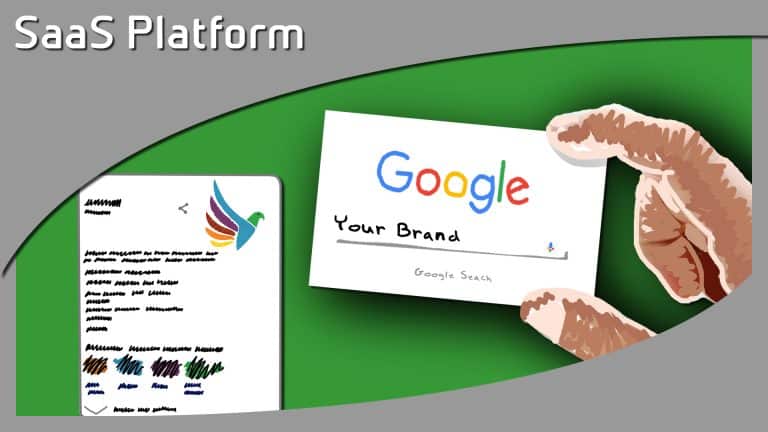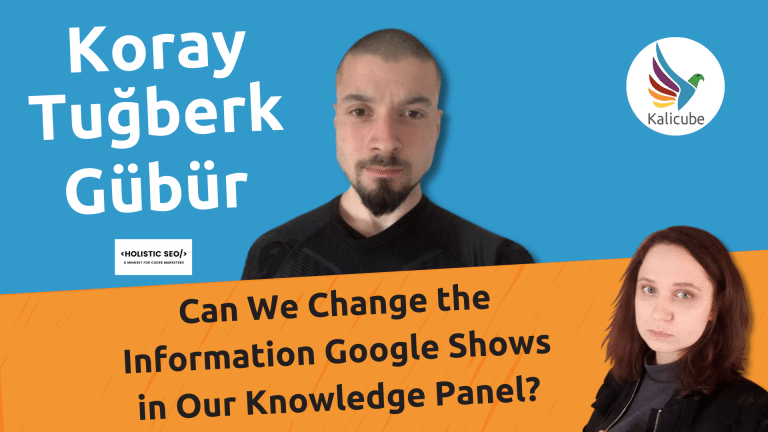Google Knowledge Vault December 2023 Update: What You Need to Know

What is the December 2023 Knowledge Vault Algorithm Update?
The December 2023 Knowledge Vault Algorithm update was the second core update to Google’s Knowledge Vault for 2023. The December 2023 Knowledge Vault update affected Corporation Entities.
Google reclassified or recategorized Corporation Entities in the same way reclassified and recategorized Person Entities in July 2023 – but on a much smaller scale. Duplication of Person Entities in the Knowledge Vault and Knowledge Panels remains challenging for the algorithms. Corporations are easier to classify and disambiguate because they are matters of public record and there are fewer companies than there are people.
The result of the December 2023 update was companies with Knowledge Panels increased by 8.54%. Companies with Knowledge Panels with no subtitle increased by 39.49%, and Knowledge Panels with a “company” subtitle increased by 16.17%.
In the Knowledge Vault, Google reclassified 5.13% of Corporation Entities as a “company” and removed more specific titles the Corporation Entities had before the update. The number of Corporation Entities with no subtitle increased by 6.34%. Reclassification of subtitles means Google lacks confidence in the understanding of the Entity. Corporation Entities affected by the reclassification to “company” experienced a 30% reduction in Google’s Confidence Score.
Google Engineers have instructed the algorithms to take a cautious approach to classifying Corporation Entities unless they are confident in their understanding of the Entity.
The Confidence Score is a number Google attaches to an Entity and indicates how confident the algorithms are about the Entity. Google is sunseting the Confidence Score in the Google Knowledge Vault API in 2024.
What is Google’s Knowledge Vault?
Google’s Knowledge Vault is Google’s machine-readable encyclopedia storing “facts” the search engine understands about the world. Google’s Algorithms collect and verify facts from various sources on the Internet to populate the Knowledge Vaultwith Entities. Entities are “things or concepts” identifiable and definable, such as people, places, podcasts, music groups, or events.
Google uses the Knowledge Vault to enhance search results using Entity-based semantic search to build an understanding of the world through its understanding of things and concepts and their relationships to other things and concepts. Google uses Entities, their attributes, and relationships to connect Entities to understand the meaning and intent behind user searches. Google matches things, not strings, like keywords, to produce search results that best match what the searcher is looking for.
Google creates a KGMID for an Entity when its algorithms are confident it knows, likes, and trusts a brand or business. Google displays its understanding of the facts about an Entity in Knowledge Panels that appear on the right-hand side of the search results for desktop and in Knowledge Panels in AI Overviews results.
Google announced the Knowledge Vault has 500 billion facts describing 5 billion Entities in 2020.
Kalicube analyses the Entities in the Knowledge Vault using its proprietary software, Kalicube Pro™. Kalicube Pro calculates 9.25 billion Entities and 925 billion facts describing those Entities.
Google rolled out a significant update to its Knowledge Panels from the 14th to 17th of December 2023, predominantly impacting corporations and their representation within the Knowledge Vault.
Google updates the Knowledge Vault in July and December each year. Google performs a third update in March if the Knowledge Vault requires further refining. The Knowledge Vault Algorithm Updates updates Google’s confidence in understanding how relevant Entities are to a topic and the Entities’ relationships to other Entities. Entity confidence scores change every 2 – 3 weeks.
How did the December 2023 Update Affect Corporation Entities?
The December 2023 update affected Corporation Entities in three ways, as listed below.
Increased visibility for Knowledge Panels: Knowledge Panels for Corporation Entities increased by 8.54%, indicating Google is surfacing more businesses in search results.
Increase in Companies in the Knowledge Vault: Google increased the number of corporations in the Knowledge Vault by 5.13%.
Reduced Average Confidence Score: The average Confidence Score for corporations in the Knowledge Vault dropped 8% despite the increased visibility. The Confidence Score decreased because Google reclassified subtitles for Corporation Entities in the update. Google reclassified Corporation Entities using the broad subtitle “Company.” Company subtitles mean Google is less confident about its understanding of the Entity.
Dramatic Reduction in Confidence for Entities Given a new Subtitle: Corporations whose subtitles changed or removed experienced a significant 30% decrease in Confidence Score. Google reclassified Entities where the algorithms lacked confidence in understanding, and the approach was broad and cautious.
How did the December 2023 Update Affect Person Entities?
The December 2023 update affected Person Entities in three ways listed below.
Decrease in Knowledge Panels: Knowledge Panels for Person Entities reduced by 2.82%.
Boost in Average Confidence Score: The average Confidence Score for Person Entities increased by 4%. The July 2023 Knowledge Vault Update focused on Person Entities, and the increase in confidence reflects the reclassification results.
Duplication challenge remains: The update highlighted the ongoing struggle with duplicate entries and the immense volume of people compared to corporations.
Don’t be surprised if your online presence feels slightly adjusted. Remember, Google is constantly refining its algorithms, and these fluctuations are part of the process.
Kalicube predicted Google would continue cleaning up Person Entities in the Knowledge Vault and Panels in the December 2023 Update. The December 2023 update focused on Corporation Entities, and Person Entities remain duplicated and messy. Kalicube expects another update to continue classifying and organizing Person Entities in 2024.
Kalicube expects Google to perform a “deduplication update” in the future and it will affect all Entity types. The deduplication update is not a priority for Google and Kalicube predicts the update to happen in 2025 or 2026 when duplication of entities will become both a visible and an algorithmic problem.
Kalicube predicts Google to focus on classification in 2024, then the Entity accuracy and Entity growth third. Google will focus on these elements to ensure the Knowledge Vault interacts with Large Language Models more efficiently.
How Has the Knowledge Vault Grown Since the Killer Whale Update?
The Knowledge Vault has grown substantially since the Killer Whale Update. Kalicube Pro tracks 8,566,084 KGIDs, up from just over 7 million during the Killer Whale update. Of the 8,566,084 Entities, 4,149,448 are Person Entities, and one-third are neither corporations nor people, and include events, podcasts, and music recordings. The increase in KGIDs demonstrates how Google is expanding its understanding of Entities, the facts about the world, and how Entities relate to each other. Google understands the meaning behind the words.
The latest update tidied and refined Google’s understanding of Corporation Entities.
The full impact of the December 2023 update is rolling out, and it is clear businesses must stay informed and adapt to these changes to ensure their online presence remains strong.
The Entities in the Knowledge Vault are increasing. Entities in the Knowledge Vault are those Google is growing and continuing to grow. Accurate categorization and representation have never been more critical for corporations looking to thrive in the digital age.
How Does Kalicube Measure Knowledge Vault Changes?
Kalicube measures Knowledge Vault changes with Kalicube Pro.
Kalicube Pro has been collecting data from Google since 2015. Kalicube Pro contains over 50 million Knowledge Panels, tracks 7.3 million KGID over 3 billion data points, and tracks over 100,000 Entities and dozens of countries. Kalicube Pro knows which sources Google trusts to corroborate business information online - and over 40,000 of them exist.
Kalicube isolates three changes in the Knowledge Vault and measures them daily. Kalicube measures Knowledge Vault changes by magnitude, amplitude, and depth.
Magnitude: How many Entities have experienced an increase or decrease? Kalicube calls this measure reach and breadth.
Amplitude: How significant is the change in the Confidence Scores of the affected entities at a micro level? Kalicube calls this the scope and height. Kalicube Pro has an internal Confidence Score called Brand Authority. Kalicube is able to measure confidence after the Confidence Score is removed from Google’s API.
Depth: How many entities does the Knowledge Vault API return for a query?
The graph below shows the Magnitude or Volatility in purple and the Depth in red. Kalicube uses amplitude and other measurements internally as part of the paid Kalicube Pro platform.
How Does the Knowledge Vault Update Affect SEO Strategies?
The Knowledge Vault Update affects SEO strategies because Google updates the Knowledge Vault to add, remove, and reclassify Entities in the Knowledge Vault. Google emphasizes links and keyword matching less as it builds its Knowledge Vault and topic layer. SEO strategies neglecting Entity optimization do not educate Google about the brand, meaning Google doesn’t know, like, or understand the brand and the brand does not earn a place in the Knowledge Vault.
Google draws on the Knowledge Vault to enhance and enrich search results through Knowledge Panels, Entity lists, and recommendations in the traditional blue links. Google uses the data in the Knowledge Vault to train its large language models like Bard and to produce AI Overviews search results.
Pro tip: entities in the Knowledge Vault are not necessarily “safe” and can be deleted. The average life expectancy of an entity in the Knowledge Vault is 354 days (Kalicube Pro data from 2023).
Educating Google’s Algorithms and earning and keeping a place in the Knowledge Vault is vital in the generative AI search results era.
Educating Google means communicating a company or brand’s identity and offerings to Google unambiguously by providing explicit content that accurately represents who the brand is, what the brand does, and who the brand serves.
Maintaining consistent information about a brand across every digital platform is essential. Google corroborates what a brand says about itself by fact-checking other sources Google trusts. Confidence in the brand grows, earning a KGID, and as Google corroborates more facts about the brand, it triggers a Knowledge Panel for brand searches. A position in the Knowledge Vault puts a brand ahead of the competition because Google knows, likes, and trusts a brand.
Brands in the Knowledge Vault aren’t competing with millions of unknown websites. The brand is embedded in Google’s brain. Continuing to educate and reinforce Google’s understanding ensures the brand stays there.
Remember, this update is just a snapshot of Google’s ongoing work. Stay informed about future changes and adjust your SEO strategy to ensure your website and content remain discoverable in the ever-evolving Knowledge Vault.
Stay ahead of the curve with Kalicube’s products and expertise, and harness the full potential of the Knowledge Vault. We cover how this Knowledge Panel Algorithm functions and strategies you can use to feed it with factual information about an Entity.
The Knowledge Vault is fundamental for you and your digital marketing efforts. Book a call with Jason Barnard today to find out how Kalicube can help you achieve these goals.






